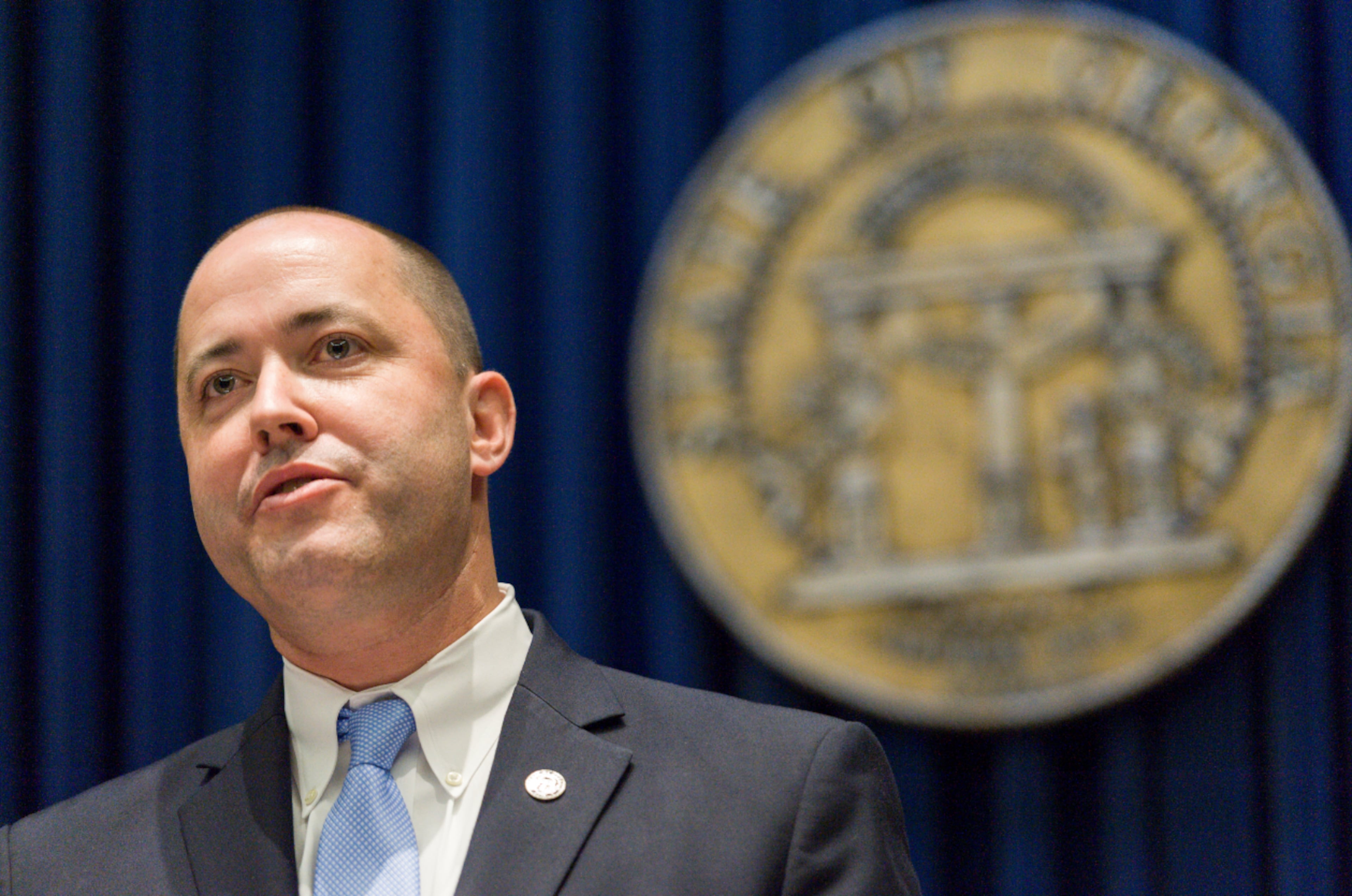OPINION: Kemp and Company rigging the judicial system? Objection!

Collusion? Absolute mockery of the electoral and judicial systems?
You be the judge.
Gov. Brian Kemp, aided by Secretary of State Brad Raffensperger, Attorney General Chris Carr and Georgia Supreme Court Justice Keith Blackwell, have all seemingly teamed up to subvert the system and expand the Good Ol' Boys Club just a little bit further.
For years, Georgia’s governors have treated the state’s voters like inconvenient patsies when it comes to electing judges.
The state Constitution tells us that judges — whether they be on Superior Courts, the Appeals Court, or the state Supreme Court — are to be elected. Judges are to be accountable to the people.
Nod, nod. Wink, wink.
In reality, hardly any of that civics lesson blarney exists in Georgia. The selection of judges, especially spots on the top two appellate courts, is the property of the governor, and those in the judiciary dutifully play along in this rigged game.
To avoid the unwashed masses weighing in on their selection, judges have for decades retired or resigned before the end of their terms to allow the governor to pick a replacement. Sure, appointed judges later run for election, but by then they will be Incumbent Judges, and only the foolish or the brave challenge Incumbent Judges. In fact, no sitting Supreme Court justice has ever been defeated. Not. One.

Last month, Blackwell, a youngish whip-smart justice, said he was going to move onto greener pastures. The $175,600 he made last year is not enough for some to raise a family these days, and the 44-year-old jurist said he was heading to the world of private practice. A former Supreme Court justice is a fine addition to any silk-stocking law firm and could reasonably triple his salary.
However, Blackwell has to wait until November before he reaches the 10-year mark of state service for a pension. (He was appointed to the Appeals Court in 2010 and the Supremes in 2012.) So, you might think that Blackwell would do what any reasonable person would do. He’d show up each morning, put in an honest day’s work and fill out his term, which ends at the end of the year.
Nope.
That would allow an open election for Blackwell’s seat, and you never know who you’ll get with an election. Voters are sometimes unpredictable.

So, they came up with a fast one. Blackwell will quit in November with about six weeks left in his term. Why then? Well, Governor Shotgun gets to appoint a replacement, and that person will then be granted two years to get comfy in that office before having to run again for election.
But here’s the really rotten part of this deal: Secretary of State Raffensperger, with advice from Attorney General Carr — and, one supposes, urging from Governor Shotgun — canceled the May 19 election for this seat, even though at least two candidates were ready to run.
Let me make it a little clearer. There is currently no vacancy for the governor to fill because Justice Blackwell is still in office. So there should be an election in May. Not some inside-deal, home-cookin’ solution like The Gov and Friends are trying to serve up.

That is precisely the stance being taken by John Barrow and Beth Beskin, two hopeful candidates for the seat. Barrow is a former Democratic congressman from Athens and Beskin is a former Republican state rep from Atlanta.
Both of them and two others were running for a Supreme Court seat that was to become open at the end of this year with the retirement of Justice Robert Benham. However, Benham — who in an opinion once extolled the need for elected judiciary — suddenly announced he would instead leave this month, creating a vacancy for Kemp to fill and leaving the candidates high and dry.
In the Blackwell case, both Beskin and Barrow have gone to Fulton County Superior Court and filed a writ of mandamus, which is a legalese way of saying, “Hey, Mr. Secretary of State, do your job and hold an election.”

I reached out to the governor’s office (no response); the secretary of state’s office (same); the attorney general’s office (they said Carr’s advice to the secretary of state is attorney-client privilege); and the Supreme Court (Justice Blackwell isn’t saying anything else).
There’s a theory that says appointed judges, when vetted through a system and then held accountable, can be better than elected judges, who must worry about politics. That might be true. But Georgia’s law says “elect them.”
That has not been the case. Eight of the nine state Supreme Court justices were first appointed to the bench, as were 11 of the 15 Appeals Court judges.

Cary Ichter, the attorney representing Beskin, said a closed system has emerged. “The more people in the judiciary are beholden to the executive branch, the better the executive branch likes it,” he said.
Judges, especially the higher-up ones, are usually appointed to the bench, so they figure it’s their duty to let the governor pick the next generation. “The custom comes from a sweetheart deal between the executive branch and the judiciary,” Ichter said.
Barrow said this new scheme is worse than the usual custom of skirting elections by appointment.
“This looks like business as usual, but it’s different from business as usual. This sets a terrible precedent,” he said. Namely, canceling an election even though there is no vacancy.
“This is an unprecedented power grab,” Barrow said.
But these days in politics, unprecedented is becoming routine.



